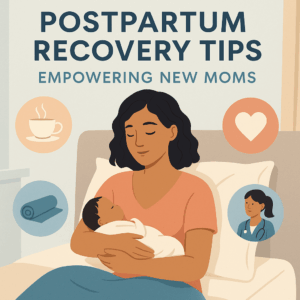Dispelling Sleep Myths: A Note From Rachelle

We have supported hundreds of families to get their little ones sleeping through the night and we have heard every story you can imagine. We thought it would be super helpful to get all of those sleep myths out on the table and give you some Maternal Instincts and Baby Created Sleep© answers!
Sleep Training…..what does this term mean to you? What methods do you know about so far? I would like to go over a few of the most commonly advised sleep solutions to give an explanation as to the reasons behind these statements from your sleep specialist, pediatrician, or your local moms group. Let’s just say that they are on to something with these, but there needs to be clarification too. Read on:
Sleep “Training” Myth: #1 Early Bedtime
It is very common to hear that an early bedtime will help with overnight sleep. There is a lot of talk about “windows of opportunity” for optimal sleep. I’ve heard early to bed, early to rise late to bed early to rise. So what is it that they are trying to tell you?
Well it has everything to do with the circadian rhythms. Circadian rhythms develop in 3 stages from birth to 12 weeks. They help separate day from night and give your baby time to get into rest and repair sleep for night time. The circadian rhythms are very important to help with a bedtime routine and the beginning steps for structuring nighttime sleep.
So when the sun is setting your baby’s very sensitive and newly developed circadian rhythms are telling them to go to sleep. That doesn’t mean they can maintain 12 hours of sleep with no food until the sun rises. So we work with both ….circadian rhythms AND the need for growth and development. It is not easy to achieve all of the daily caloric needs into only 12 daytime hours when your baby has a small belly. This takes time, growth, and understanding of your baby’s daily intake. Do not pull night time feeds that you have not replaced in the day time.
Which leaves us with, when is it appropriate for an infant to sleep 12 hour nights?
It isn’t relevant to a young infant, but you can probably experience this closer to 18+ months old. (Which is an entirely new blog post, by the way.) But what you need to take away from this is that this advice given needs to be applied to the appropriateness to YOUR infant’s development and needs. Not all babies are the same or develop at the exact same rate, this should be taken into account when considering sleep training.
Sleep “Training” Myth #2: Feed Larger Meals at 4 Hour Stretches
The intestines empty about 1 hour after a meal and the metabolism triggers every 2 hours. So it is no surprise your baby wants to eat every two hours. That paired with their small stomach size they need frequent meals to achieve total daily caloric needs. As I mentioned before, you have to replace all calories pulled from the night time into the day time. This would be very hard for a baby to have only 4 meals a day at 7 am, 11 am, 3pm, and 7pm and still consume 24 ounces from birth to 4 months and upwards of 32 ounces by 6 months old. This means you have to get your baby to eat 6-8 ounce bottles ….at…every…feed! This doesn’t allow your baby to reach natural sense of satiety and balance their own food intake because each meal is the exact same amount. It also stretches their tiny bellies to an unnatural size.
It is much more appropriate to feed every 2-3 hours on demand and give your baby the control over their intake and ease the digestion process for them. They can still achieve extended night sleep with a 2 hour daytime feeding schedule…it actually helps significantly. As total caloric intake for the day is often much higher. Even 3 ounce bottles at 6 am,8am,10am, 12pm, 2pm, 4pm, 6pm, and 8pm will give you 32 ounces and a 10 hour night of sleep. That sounds pretty fantastic to me and it’s very easy for your baby.
Sleep “Training” Myth #3: 12 Hour Nights
So when do you get, those much talked about 12 hour nights? The short answer is over 18 months. The reason why is because that is their recognition of night and say and sleep association is now typically developed. Also at this time, your baby’s sleep shifts heavily into nighttime and away from day time. Not that naps are over, but they are reduced down to 1 or 2 and typically last only 1.5-2.5 hours total. So, unfortunately, this is a dream that parents have to wait a bit to realize. That said, with our method, babies younger than 18 months can be gently guided to sleep long stretches at a time. It starts with observation and routine as well as monitoring caloric intake and factors that make be affecting the nursery or sleeping area such as blue light from electronics.
Sleep “Training” Myth #4: Self Soothing
You can not simply “ teach” a baby to self soothe. You have to manually reset them. Your cortisol will sync with your baby and you will be determining the level of which they are at. So, stay calm and hold your baby during a time of frustration , crying, or being upset. Be their calm as they can’t be their own. Do not leave a baby to “self soothe” because they won’t. They will simply stop crying…eventually.
Lets chat a moment about the development of the nervous system. This is slowly developing. I’m talking about 90% by 5 years old so, yes, that slow. Because they are tiny, underdeveloped humans who need to survive, they need to make it. So if their parent leaves and they begin crying for you, they will eventually realize you are not coming and preservation must begin. They will preserve their calories, energy, and strength for as long as they can until you return. That, and their cortisol levels stay at the elevated state they were left in since they can not reset them on their own.
So now you have a extremely stressed out baby who lost understanding of how to cry out to you. This means one of two things. They will scream frantically every time you set them down to walk anywhere or in a sleep space as they are nervous for when you will return. Or. they will stay very quiet and never really cry. So what can you do? You will always get the best sleep when meeting your baby’s needs. So, the better you understand the development of an infant in the first year, the better you will understand how to approach supporting night time stretches.
Positive Sleep “Training” Solutions
What we can do is change the expectations to make sure you aren’t setting yourself and baby up for false failure. By 12 weeks old babies make a huge leap in night time sleep. So start out with approaching the first 12 weeks as a fourth trimester and don’t force any sleep goals. Focus on weight gain and a secure trusting relationship with your little one. Note that a baby with great weight gain might show signs of wanting longer night stretches closer to 9-10 weeks. Follow their lead. Seek out truths related to sleep, development, and most importantly listen to your baby. They truly are speaking to you. Need more help? Schedule a complimentary call with one of our experts.

Rachelle Gershkovich, Owner & Founder, Maternal Instincts, Inc.


